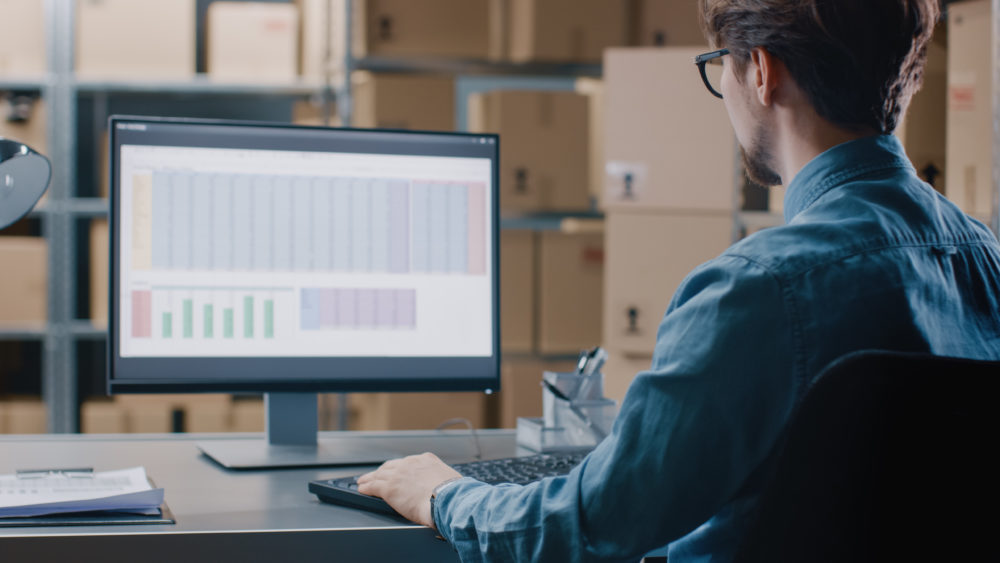It’s a conundrum that has long undermined Britain’s reputation as a creative and innovative economic force, puzzling policy-makers, economists, and business people alike. And with the uncertainties of Brexit curbing business’s appetite for investment and consumers’ desire to splash out, it’s set to become one of the central issues for surviving and thriving in the turbulent years to come. Britain’s productivity problem is no longer something that can be consigned to the realm of economic theory and speculation, as Brexit shines a harsh light on the fitness of its businesses. The first three months of 2017 saw output per hour work drop by 0.5 per cent, to levels not seen since just before the recession a decade ago. Fortunately, there are measures that businesses can take to alleviate the issue.
When we talk about productivity, we are not alluding to a peripheral issue. Productivity lies at the heart of what it means to be a viable and profitable business. The simple equation that lies at the core of profitability is achieving the maximum output, in the form of product or services, from a given set of inputs, whether those are capital assets or labour, for example. In other words, how much you can produce and sell using your available resources. Alarmingly, what France produces in four days, Britain requires five to match – a fact which puts the much-mocked French predilection for a strictly circumscribed working week in sharp perspective.
The impact of Brexit
This low productivity has a variety of consequences. For one, productivity has historically been a predictor of wage growth, with output per worker determining both the economic value of a worker to a business and how much money the business has at the end of the day to pay that worker. But whilst British businesses have survived and even thrived with these relatively low productivity levels, business conditions during and post-Brexit will likely be far less forgiving.
Whilst the likely impact of Brexit on business has been covered exhaustively in plenty of other places, and it remains unclear what the final outcome will be and what any transition from EU member to non-EU might look like, it’s worth revising the headline effects. EU immigration restrictions could lead to a shallower talent pool to draw from, affecting those who rely on skilled Europeans and the low-cost labour pool alike. Meanwhile, exiting the single market will very likely result in the reinstatement of export tariffs, making UK products and services far less attractive in our biggest market, Europe. The other side of this trade coin is the pressure that import tariffs will put on the cost of EU-imported raw materials, goods, and services. This is before we even consider the cost of red-tape and bureaucracy that could arise from bilateral trade agreements with EU and non-EU countries.
Technology and productivity
It is in this context that low productivity will evolve from perennial bugbear to fundamental menace. How can a business attack the problem and get themselves fighting fit for this harsher competitive business environment? Well, looking to the past could provide some useful guidance. Historically, technology has been the key driver of productivity, either greatly multiplying human capabilities for certain tasks or doing away with the need for human involvement altogether. At the most basic level, this can be seen with the wheel, a technology which enabled humans to multiply their natural physical power to move objects and indeed themselves more easily – allowing less people to achieve more. This basic principal lies at the heart of technology’s huge impact on productivity, yet too many businesses do not pursue them with anywhere near enough vigour.
An example from manufacturing
For instance, in my home territory of the manufacturing industry, I have encountered many examples of manufacturers who have not taken advantage of technology to ensure that they are as productive – and therefore as profitable – as they could be. Efficient manufacturing operations rely on understanding what is going on in the production line and therefore where improvements can be made. Collecting information across the line and being able to easily access and understand this data is therefore vital for ensuring maximum productivity. And not in terms of dedicated lean six-sigma projects that can take weeks to complete, but in real-time by those who run and control the production process in situ.
Despite this, we readily experience too many encounters with manufacturers who either still painstakingly fill excel spreadsheets to record this data, or worse still rely on good old fashioned pen and paper to record this data. The consequences: extra labour diverted to rote, low-skill processes, and systems which don’t enable manufacturers to easily boost their productivity by seamlessly identifying areas of the production line where they can optimise their operations. This is especially alarming when simple solutions to this problem are easily available.
Related: Half of office workers are unproductive due to poor workspace
This example highlights one of the key links between Brexit and the need for greater productivity through technology. One of the primary benefits of the EU immigration principle of freedom of movement for businesses has been a regularly-replenishing stock of cheap labour, which they could use for low-skill and repetitive processes. With immigration restrictions, very likely to quickly erode this pool after Brexit, wages will in turn rise for these low-skill jobs, making it more profitable in the long-run to invest in technology that can take on these kind of tasks.
Becoming fighting fit
The uncertainty around Brexit is dampening business’s appetite for investment at exactly the time when they need to be making decisions which will improve their fitness for the uncertain times to come. Whilst it’s understandable that organisations become more cautious when they don’t know what the future will look like, spending time and energy worrying about macroeconomic indicators such as GDP, UK productivity or net migration will only distract from the key task at hand: adapting to the incoming economic realities. Whilst Brexit will impact each industry – and indeed each organisation – in different ways, it will likely put a spotlight on most businesses weaknesses. There’s never been a more important time to understand where potential profit is being lost, and where more can be produced from less.
Jason Chester is global strategic account manager at InfinityQS Europe.





